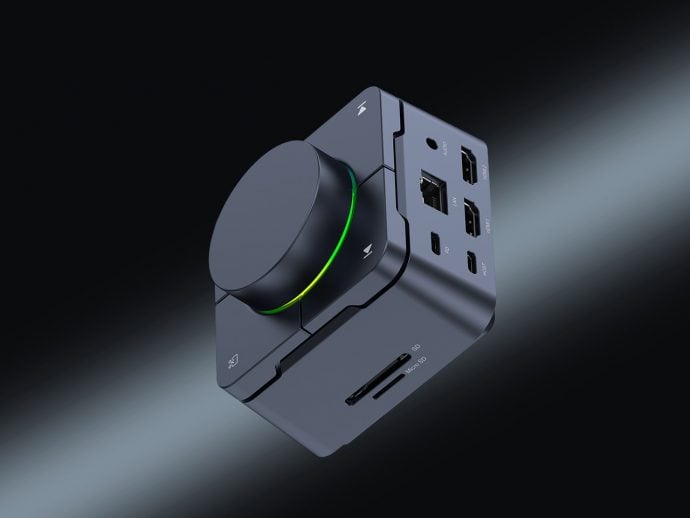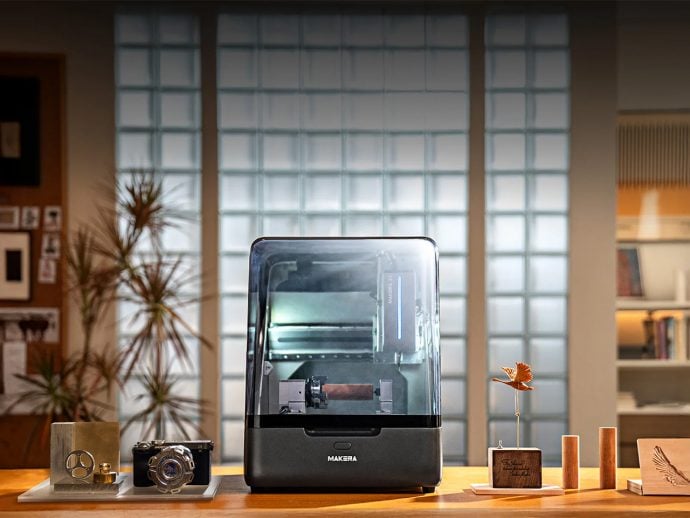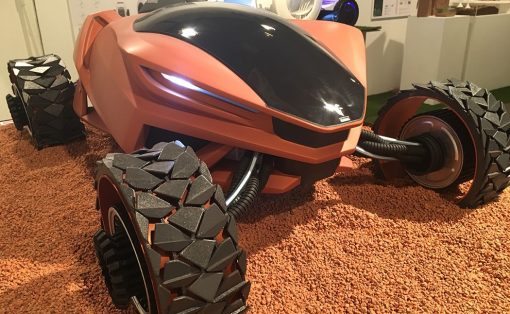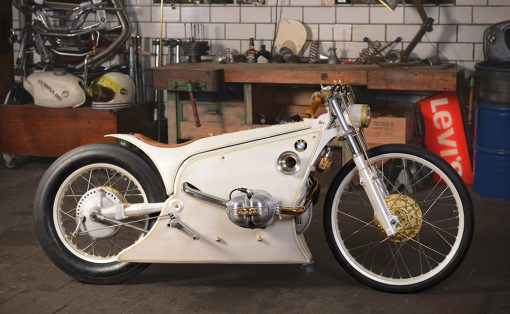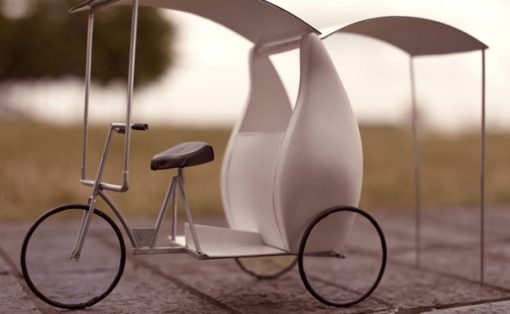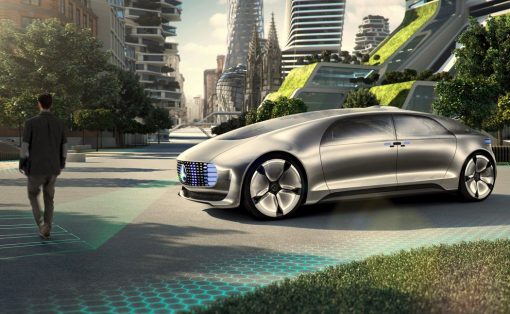Under the direction of Mazda’s new global design director, Laurens van den Acker, the challenge given to the team was to invent a novel means of registering motion in vehicles whether they’re moving or still. Nagare achieves that goal while also signaling a fresh design direction for future Mazda vehicles.
Like all Mazda products, Nagare has the soul of a sports car. Its shape is sleek and aerodynamically efficient, as you’d expect of an urban cruiser for the future. Wheels are positioned at the far corners of the envelope for quick steering response and agile maneuverability. There isn’t an ounce of overhang wasted.
Access to the four-place interior is provided by two double-length doors that hinge forward and up like the wings of a butterfly. The driver is centrally located, like a single-seat sports racer, for optimum control and visibility. Since the driver is positioned under the highest portion of the roof, there’s ample headroom with a comfortably reclined backrest. Innovative seating arrangements are a Mazda specialty, as witnessed by the successful RX-8 four-passenger sports car and the clever packaging in the upcoming CX-9 three-row, seven-passenger crossover sport-utility vehicle.
Nagare’s rear compartment is a wrap-around lounge offering relaxed accommodations for three passengers. The central front seat and expansive door opening facilitate easy entry to the surprisingly roomy interior.
Recognizing that an advanced design concept needs an advanced powertrain, Nagare could conceivably be powered by a hydrogen-fueled rotary engine. Mazda’s work on this advanced driveline technology is among the most advanced in the world, with hydrogen/gasoline-fueled rotaries powering RX-8s currently in service in Japan.
Design: Mazda [ Via: The Cool Hunter ]



